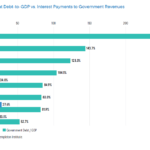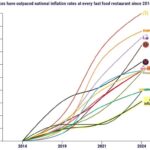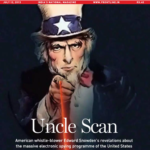One of the key questions that linger on emerging market investors is: When will emerging markets turn into developed markets?
An emerging market technically means it is emerging and at some point in the future will reach the developed market status. However that does always work out that way.In fact, some call emerging markets as “submerging markets” as they disappoint investors year after year.
This year also emerging markets are performing poorly so far. For example, China is off by about 22% and Brazil is down by 11%.
The U.S. used to an emerging market back in the 19th century. It turned into a developed market in 20th century and today is the world’s largest and most liquid market attracting capital from around the world. I recently read an article on this topic by the Journal’s Jason Zweig. From that article:
The government massively overinvested in transportation and land development. The banking system was inefficient and corrupt. State governments gorged on debt, then defaulted on it with aplomb. The stock market was crooked, rife with cronyism and insider trading. Stocks shot up and down like yo-yos.
China? No, that’s the U.S. in the 19th century, but it has lessons for investors looking at China and other emerging markets. Financial history shows that the return on U.S. stocks during the country’s own emerging-market period was no higher than it has been since World War II. The lesson: Emerging markets aren’t lucrative investments just because they are “emerging.” They deliver higher returns only after they have been battered, as China is being battered now.
British investors learned and relearned that lesson the hard way in the 19th century, when they poured today’s equivalent of tens of billions of dollars into U.S. stocks and bonds.
They were driven by the epic, generation-long decline of U.K. bond yields from about 5.5% in 1816 to less than 3% in 1845, and again from roughly 4% in 1866 to 2% in 1897. With money so cheap, British investors helped fund the Erie Canal, successful railways and thriving telegraphs. Those who came in on the crests of euphoria lost fortunes on steamboats, mines and even municipal bonds, as state after U.S. state repudiated its debt.
Source: Market Crashes, Stock Scandals: Lessons From the U.S. Frontier, Jan 27, 2016, WSJ
History shows that very few emerging markets have become developed markets. Singapore used to be a frontier and then emerging market after its independence in the last century. However the country developed quickly to become one of the Asian Tiger economies. Today Singapore is a developed market on par with other developed markets such as those in Europe. South Korea and Taiwan another example that underwent a total transformation in a short span of time.
Other countries such as Malaysia never became a fully developed market. Malaysia and Singapore were equal at the time of the birth of Singapore. However Malaysia is still emerging after many decades while Singapore shed its emerging status long ago. Thailand is also emerging for many years and is far away from reaching the developed world status.
While the BRICs were hot a few years ago, nowadays the BRICs have almost turned into a bunch of bricks for investors.
The Brazilian economy is mired in recession. Corruption and fraud in addition to declining demand for commodities led Brazil from a shining star a few years ago to the most hated emerging market. Today the Bovespa plunged the most in four years and is down an incredible 45% in the past year. Brazil wasted an excellent opportunity to diversify and improve the economy during boom times. Instead Brazil has failed investors almost every year since the global financial crisis.
Russia is highly dependent on oil. As prices of crude oil have crashed the Russian economy has been hurt significantly. Russia in general is the least favorite from the BRICs due to fears of nationalization and other factors. As Russia is considered as the permanent enemy of the west, the country is not exactly the top destination for foreign investors. Since the country is huge based on land size and has a small population, Russia does not really seem to care to achieve the developed world status.
Indis was marketed as “Incredible India” a few years ago. However after a dramatic sharp rise in the equity market a few years ago, the economy has basically stalled and reforms under the new administration have been slow to implement. Though the country has declined the least and investors prefer India over other emerging markets, India is still a poor developing country. With a huge population like China, India may take a century or two to become a developed market.
China is a perennial conundrum for international investors. The Chinese economy has slowed down and the country has pretty much built all the infrastructure it needs. So the transition to a consumption-based economy is underway and that process is facing headwinds. In order to increase consumption of goods and services many things have to change among consumers such as liberal use of credit, reduction in savings, etc. However cultural factors and lack of social safety nets force Chinese to save more and consume less.In addition, the state plays a major role in the functioning of equity markets with many interventions and arbitrary rules when markets fall. Overall as a communist country with a capitalist economy China will always be a puzzle wrapped in an enigma for foreign investors. So visions of China turning into a developed market with a free market economy and democratic political system will take time to become true.
Other countries such as Mexico, Chile have had some success in economic and political advancements. But they are also years away from shedding the emerging market status. Chile is a still a commodity-based economy particularly copper.Mexico is a manufacturing powerhouse. But lack of diversification in the economy and lack of investments in R&D, technology, etc. together with crime and leadership with a vision continue to hinder Mexico from realizing its full potential.
In summary, emerging markets will also be emerging and accordingly volatile compared to developed markets. So investors should not be worried or shocked when Chinese markets fall by 5% or more. Investors should not allocate a high portion of their portfolios to emerging markets for the reasons discussed above. Simply investing in emerging markets based on some far-fetched ideas are not wise. An example of such a case would be to invest in Chinese retail or tech stocks simply because there are over 1.3 billion people living there.
The path from an emerging to developed market is a long and hard one filled with many unknowns.Only a handful of the current emerging markets will attain the next level in the future.



